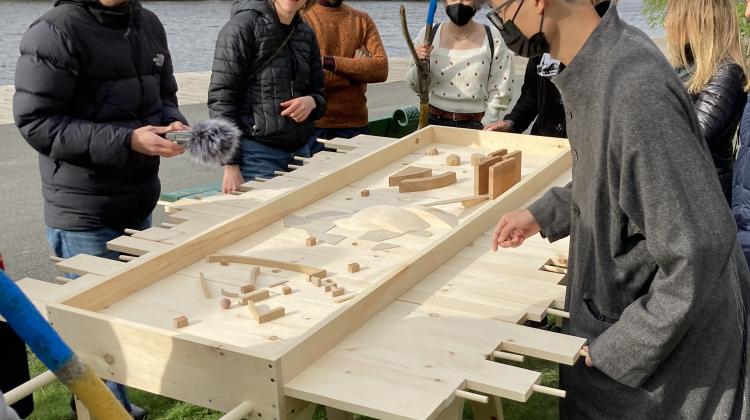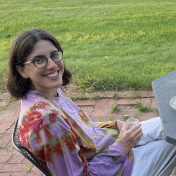Katie Rotman
Katie's research on play and engagement in public space aims to better define methods for developing inclusive, sustainable and impactful design that transforms our urban surroundings into truly equitable spaces. Her previous professional experience as an art educator left her deeply intrigued by children’s understanding of space and its implications, ranging from power dynamics to accessibility issues. She is interested in architectural projects and interventions that empower and give a sense of autonomy to all users, specifically children and alternative user groups. Katie's architectural approach is grounded by her sculptural practice and interest in balance, weight and implied forces.
After completing a BA in Studio Art at Oberlin College in 2014, Katie worked at various institutions and non-profits. Most recently, she held the position of Manager of Operations & Special Projects at The Architectural League of New York, and as Residency and Jury Coordinator for Art Omi: Artists.

Marble Wobble: Dudley Triangle, developed for Ana Miljacki’s Collective Studio, is set in the neighborhood of Dudley, home to DNI, a community land trust in Roxbury, Boston. The game highlights the challenges, pitfalls and thrills of working as a collective. There are four playing modes: collectively toward a common goal, together against a common adversary, competitively or contemplatively.
Tilting the Scales, the second in the series of wobbles, was developed for Gediminas Urbonas' course Art in the Public Sphere which had as its site Herter Park Community Garden. This iteration focuses on the cadence of gardening formed by individual labor toward the care of a shared space. The rhythms of gameplay demonstrate the dynamics between advocates for the community garden and larger city bureaucracies as they navigate the challenge of shepherding an un-comforming space in the public sphere.



